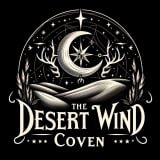
Photo by Content Pixie on Unsplash
* Harm none, or something like it. While there are a few different interpretation of what actually constitutes harm, most Wiccans follow the concept that no harm should intentionally be done to another individual.
* Respect the beliefs of others. There's no Recruiting Club in Wicca, and the * Wiccans are not out to preach at you, convert you, or proselytize. Wiccan groups recognize that each individual must find their spiritual path on their own, without coercion. While a Wiccan may honor different gods than you do, they will always respect your right to believe differently.
* You don’t have to practice magick to be Wiccan, but most Wiccans do. Magick is part of the Wiccan world view. Wiccans honor teachers and leaders, but do not recognize authoritarian hierarchies because no one is intrinsically better than anyone else is. You can become a witch through hereditary, solitary study, or by joining a coven where you will be taught . Witches are not anti-Christian, nor do they harbor negative feelings about other religions.
* In the 1970s, the Council of American Witches, an organization that no longer exists, drew up a list of basic principles. We’ll just paraphrase them here to give you an idea of what they sound like:
* We practice rites to attune ourselves with the natural rhythm of life forces.
* We recognize that our intelligence gives us a unique responsibility toward our environment.
* We acknowledge a depth of power far greater than is apparent to the average person.
